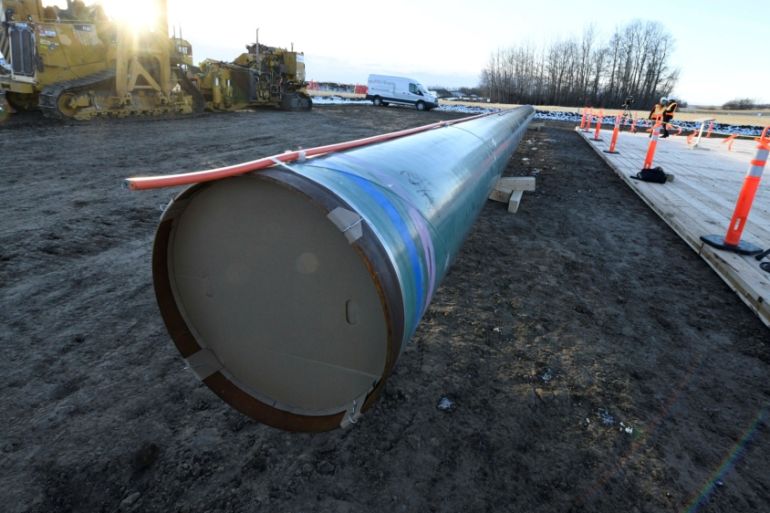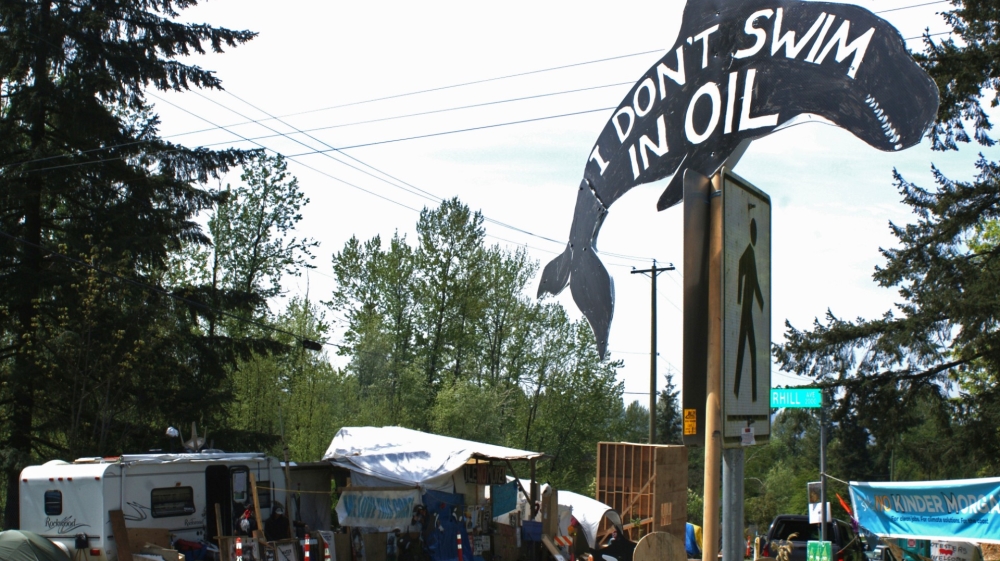Canada Supreme Court dismisses Trans Mountain pipeline appeal
The court’s decision ends a dispute between Ottawa and Indigenous nations who claim the pipeline endangers their lands.

Canada’s Supreme Court dismissed an appeal on Thursday from British Columbia’s First Nations against the Trans Mountain oil pipeline expansion, removing a potentially major obstacle to completion that would nearly triple the flow of oil from Alberta to the Pacific coast.
The top court posted the decision on its website without further detail, rejecting the appeal from the Squamish Nation, Tsleil-Waututh Nation, the Ts’elxweyeqw Tribe and Coldwater Indian Band, effectively ending the years-long legal battle over the project.
Keep reading
list of 4 itemsIndigenous people in Philippines’s north ‘ready to fight’ as tensions rise
Curfew announced for under-18s in Australia’s Alice Springs after unrest
‘We exist’: A Himayalan hamlet, forgotten by Indian democracy
The pipeline has put Prime Minister Justin Trudeau’s Liberal government in a political quandary. It purchased it in 2018 to ensure the expansion.
Trudeau has promised to reduce greenhouse gas emissions and improve federal relations with Indigenous peoples, but is under pressure to help the oil industry, which is key to the national economy.
Expansion of the 67-year-old pipeline is well under way. It would nearly triple capacity to 890,000 barrels per day.
The pipeline would end at a terminal outside Vancouver, resulting in a seven-fold increase in the number of tankers in the shared waters between Canada and Washington state.

Some First Nations successfully halted federal approval of the project in 2018 when the Federal Court of Appeal said Ottawa had failed to properly consult affected First Nations, which argued that the project would damage their lands and waters.
But the same court in February dismissed challenges to the Canadian government’s second approval of the project, which has faced years of delays.
They were based on concerns from British Columbia Indigenous groups that Ottawa had not meaningfully consulted them.
The Indigenous communities have raised environmental concerns, such as the risks of oil spills.
Rueben George of the Tsleil-Waututh Nation said “[R]econciliation stopped today” after the February decision, referencing efforts between Ottawa and Indigenous peoples to come to terms with Canada’s colonial past.
Still opposition
Western Canadian pipelines have been chronically congested for years, but this year, space has opened as plunging oil prices led producers to curtail production.
The pipeline expansion still faces stiff environmental opposition from British Columbia’s provincial government but construction is under way. Natural Resource Minister Seamus O’Regan said consultations will continue as construction continues.
“To those who are disappointed with today’s SCC decision – we see and hear you,” O’Regan said in a statement. “The Government of Canada is committed to a renewed relationship with Indigenous people and understands that consultations on major projects have a critical role in building that renewed relationship.”
The pipeline would allow Canada to diversify oil markets and vastly increase exports to Asia, where it could command a higher price. About 99 percent of Canada’s exports now go to refiners in the US, where limits on pipeline and refinery capacity mean Canadian oil sells at a discount.